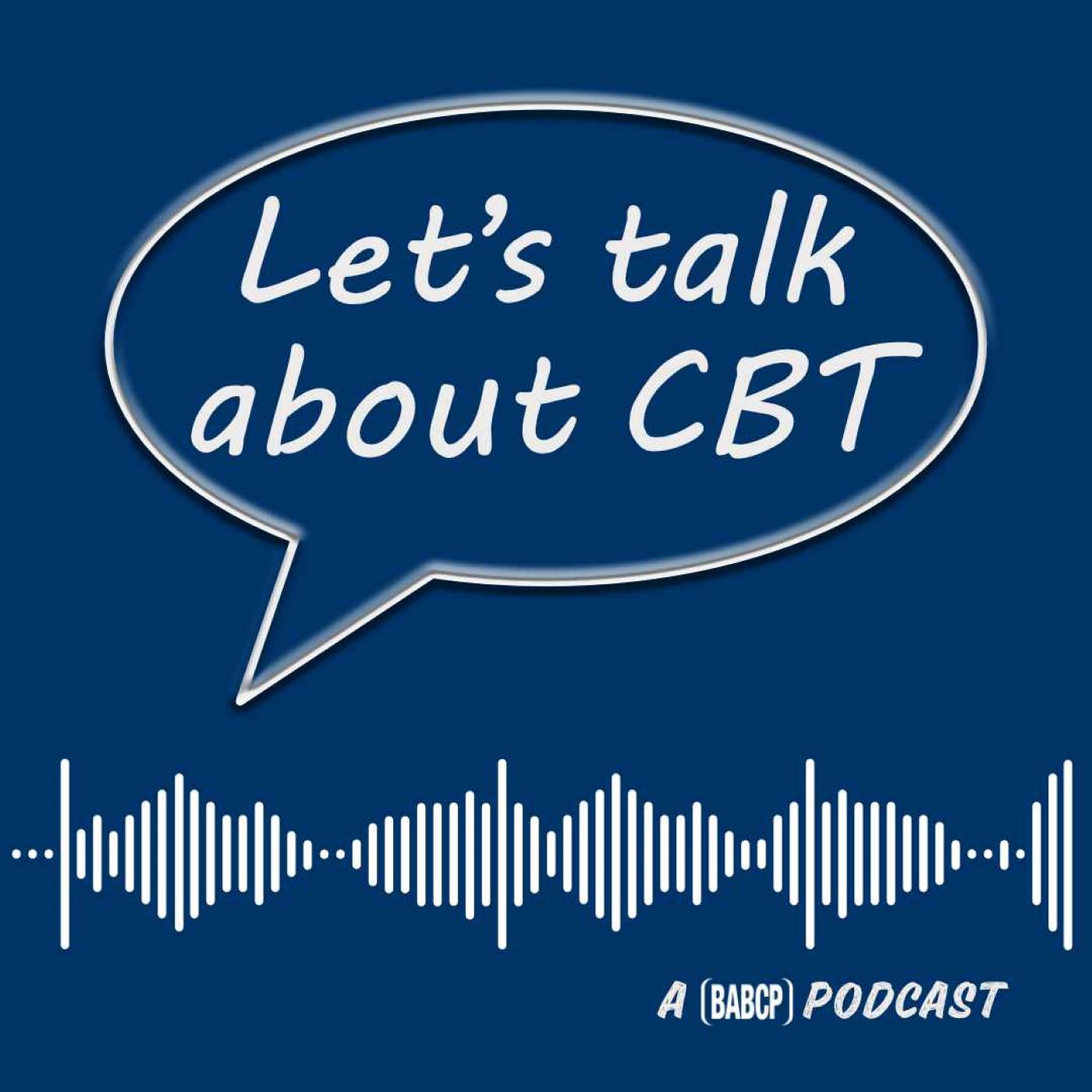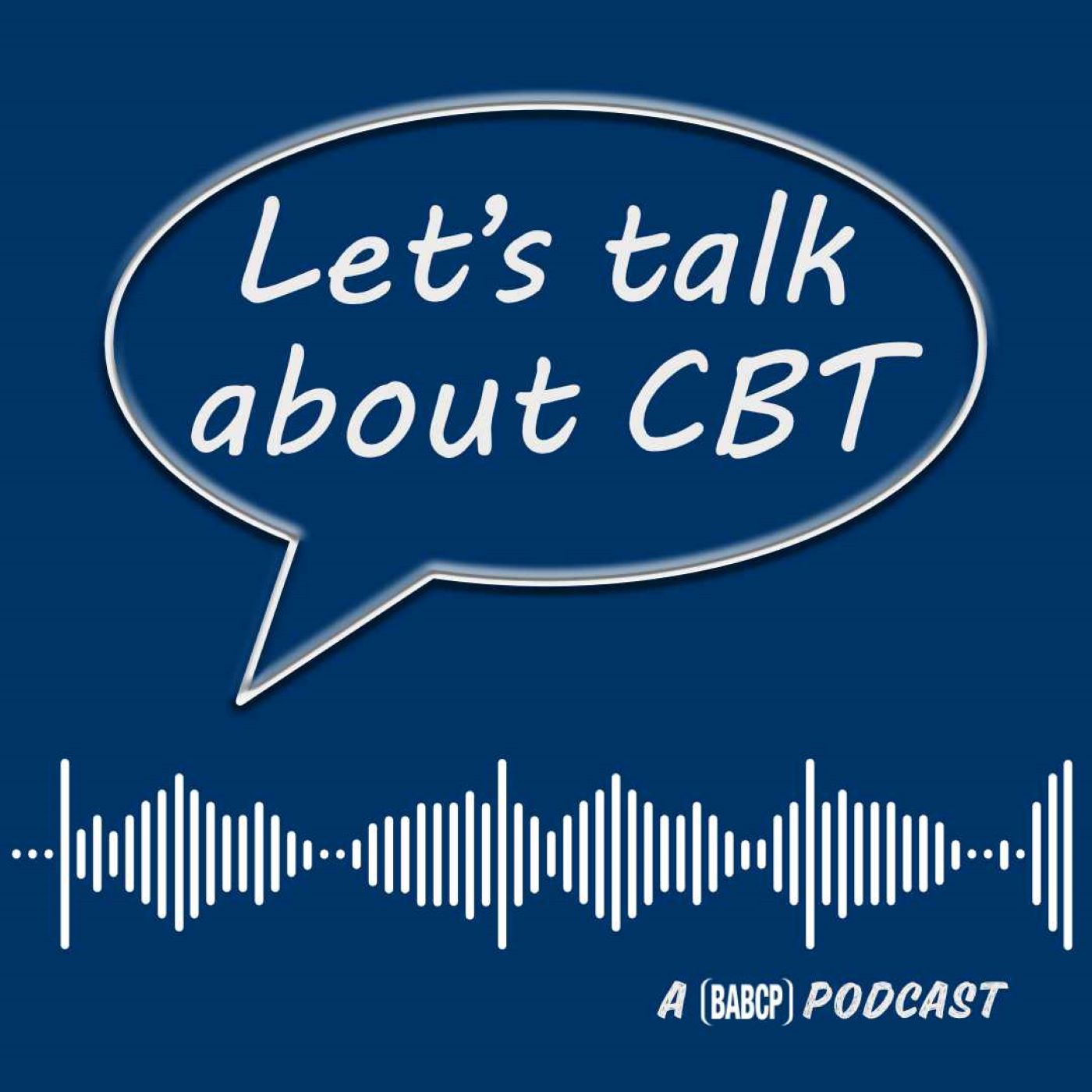Let’s Talk about CBT: A solid return on investment
Description
In this special episode celebrating World CBT Day 2025, we explore this year’s theme: CBT: A Solid Return on Investment. Host Helen Macdonald, Senior Clinical Advisor at BABCP, is joined by a range of voices reflecting on the impact, value, and future of CBT.
We hear from:
- Dr. Adrian Whittington, National Clinical Lead for Psychological Professions at NHS England, about the rollout and outcomes of NHS Talking Therapies.
- Dr. Stirling Moorey, BABCP President, on the historical development of CBT and its increasing relevance and recognition over the decades.
- Nic, a former CBT client, who shares how therapy helped him manage anxiety linked to a long-term health condition.
- Dr. Saiqa Naz, past president of BABCP, who discusses her personal journey into CBT and her commitment to inclusion, diversity, and working with underrepresented communities
This episode offers a rich blend of lived experience, clinical insight, and future vision, showing how CBT continues to be a wise investment for individuals, services, and society as a whole.
Further information and links:
Visit BABCP to learn more about CBT
Find support via NHS Talking Therapies
Discover more about World CBT Day
Find our sister podcasts and all our other episodes in our podcast hub here: https://babcp.com/Podcasts
Have feedback? Email us at podcasts@babcp.com
Follow us on Instagram & Bluesky: @BABCPpodcasts
Credits:
Music is Autmn Coffee by Bosnow from Uppbeat
Music from #Uppbeat (free for Creators!): https://uppbeat.io/t/bosnow/autumn-coffee
License code: 3F32NRBYH67P5MIF
This podcast was produced by Steph Curnow
Transcript:
Helen: Hello, and welcome to Let's Talk About CBT, the podcast where we talk about cognitive and behavioural psychotherapies, what they are, what they can do, and what they can't. I'm Helen Macdonald, your host. I'm the Senior Clinical Advisor for the British Association for Behavioural and Cognitive Psychotherapies.
Welcome to this special episode of Let's Talk about CBT celebrating World CBT Day. World. CBT Day takes place every year on the 7th of April, and this year's theme is CBT: A Solid Return on Investment. In this episode, we're exploring just what that means- I will be speaking with Adrian Whittington, who's the National Clinical Lead for Psychological Professions at NHS England and with Stirling Moorey, who's our current BABCP President about how CBT has developed over time and the importance of continued investment in it.
We'll also hear a personal story from Nic, who is a former client of Stirling's, who shares how CBT helped him manage anxiety and improve his quality of life. Finally, I sit down with Saiqa Naz who is past president of BABCP to talk about her journey into CBT from starting out in the Improving Access to Psychological Therapies services, to completing a clinical psychology doctorate, and how she embodies the idea of CBT being a real return on investment.
We hope you enjoy this episode and the range of voices reflecting on the impact and value of CBT. Let's get started! Here's my conversation with Adrian and Stirling….
Adrian, would you introduce yourself please?
Adrian: Yes. Hi. I am Adrian Whittington. I'm National Clinical Lead for Psychological Professions at NHS England, which means within England I'm the professional lead for psychologists, psychological therapists, and psychological practitioners.
Helen: Thank you, Stirling, please introduce yourself.
Stirling: Hi, I'm Stirling Moorey. I am currently the president of the BABCP and I'm a retired psychiatrist and really have been around in the CBT world since 1979. So, Adrian is speaking about CBT today and in the UK particularly and I'll just give a bit of a view of what it's been like to be in the CBT world for this length of time.
Helen: Thank you very much. And so Stirling, if we come to you first, that’s a long career- you must have seen a lot of developments over the years. Tell us a bit about what you've seen and how things have developed.
Stirling: Indeed, I mean, so right at the very beginning when I was a medical student, cognitive therapy was just being invented. And so we had BT, Behaviour Therapy, but not the CBT that we have today. And so it was quite sort of revolutionary. The behaviour therapists look down their nose a little bit at it, the psychoanalytic therapists very much looked down their nose, and I remember at one point talking to a psychoanalyst who told me that being a CBT therapist was a bit like playing a tin whistle compared to being a concert violinist. I think things have changed since then. So, over the years, what's happened is that really from the work of pioneers like Isaac Marks in behaviour therapy, Aaron Beck in cognitive therapy, for the first time psychotherapists started to actually address what evidence do we have that this works? And using randomised control trials. And this has been really powerful. It was revolutionary at the time because people thought you couldn't manualise therapy but Beck and others managed to do that. I think that's been the legacy of that, is that the services that are recognised to be really effective and are spread out across the UK that Adrian will talk about, have resulted from us gathering evidence that CBT works. The other thing that's happened is that really up until the early 2000s, we were using CBT in a lot of contexts in the UK, evidence accumulating that it was effective for anxiety disorders, depression, but other things like eating disorders, psychosis, long-term conditions, various things but they were all being delivered within a hodgepodge of services really. And I remember when the IAPT services that Adrian will be talking about, were about to be developed, my chief executive in my trust said this is amazing, it's like moving cognitive therapy from being a cottage industry into therapy mills as he called them. So, we have therapy mills across the UK, which are proving very effective in helping people with anxiety and depression. And it was that revolutionary input of David Clarke and Lord Layard who said, actually, we can work this out as a way to deliver therapy effectively and efficiently, not just in these services here and there, but across the whole country. So there's been so much change and now CBT is there for everyone.
I suppose just finally thinking about what its impact in public consciousness has been, although people maybe have heard of it and maybe witnessed people who've received it, there've been some subtle changes, I think in our perspective on the world that have been influenced by CBT. I think people from the behavioural side now are recognising that a lot of our behaviour is learned in our everyday life. We have habits and people notice they have bad habits and go to podcasts to try and get them to rid them of their bad habits. And people are really aware of cognitive bias- it's there in the media all the time, that recognition that our thinking is not always that rational and straight, for good or ill. And then the third thing is there's a new wave of CBT that's come along that's called the third wave of CBT is really looking at how we can look in and just be aware and notice our thought processes. And so the whole field of mindfulness is very popular these days. So CBT, I think even if people aren't aware of what CBT is as a therapy, it has perfused our consciousness.
Helen: Thank you very much, Stirling. That sounds like a whole symphony orchestra, not just a tin whistle from what you've been saying during your career. And thank you because that perspective of many years in the field and how things have developed, it leads us nicely to speaking with Adrian about, you mentioned IAPT, which stood for Improving Access to Psychological Therapies. I'm going to hand over to Adrian to ask him a bit about that project, how it came about and what happened.
Adrian: Absolutely. Thanks Helen. Well, of course I'm a relative newcomer to the field having been trained as a psychologis


















